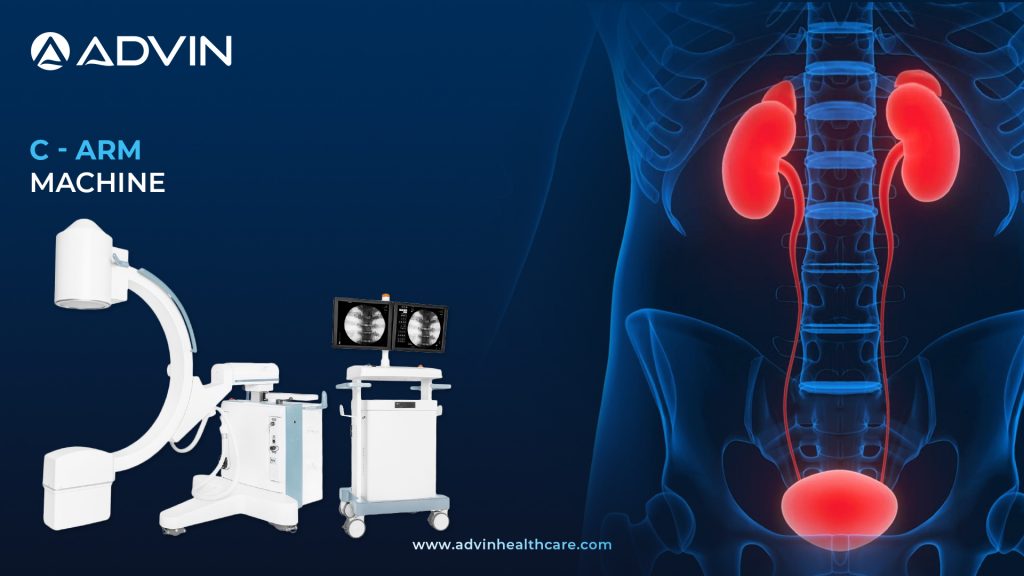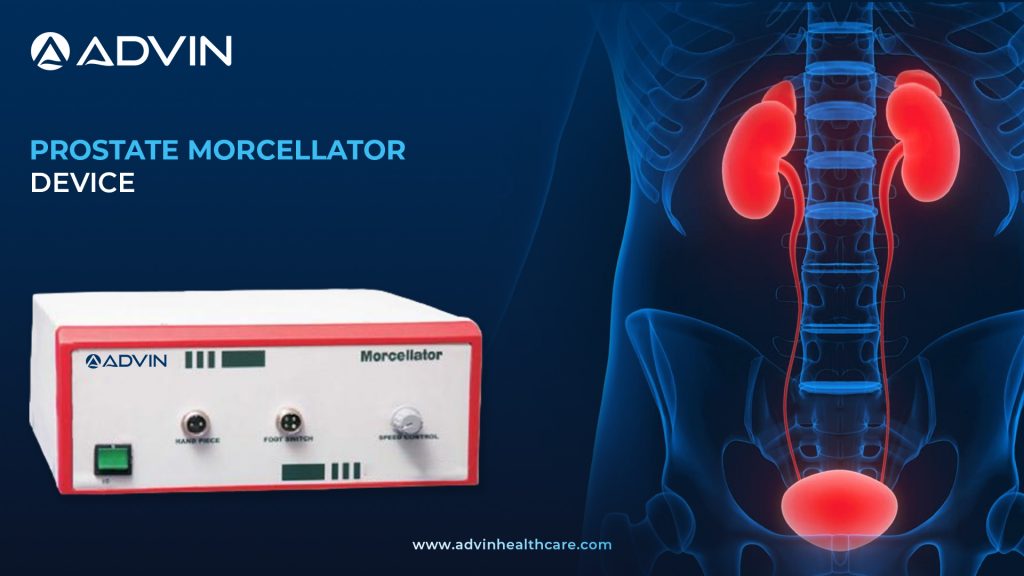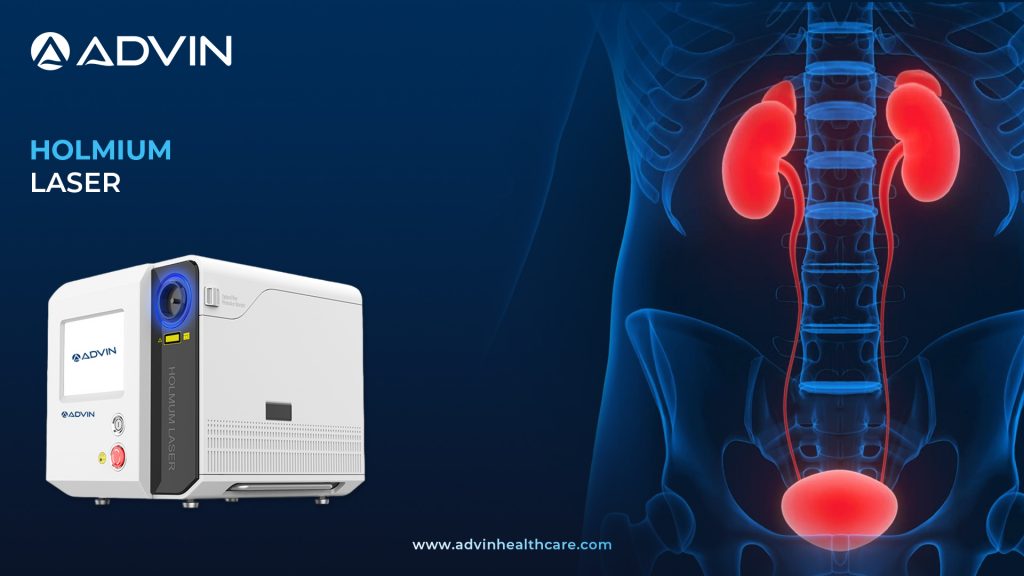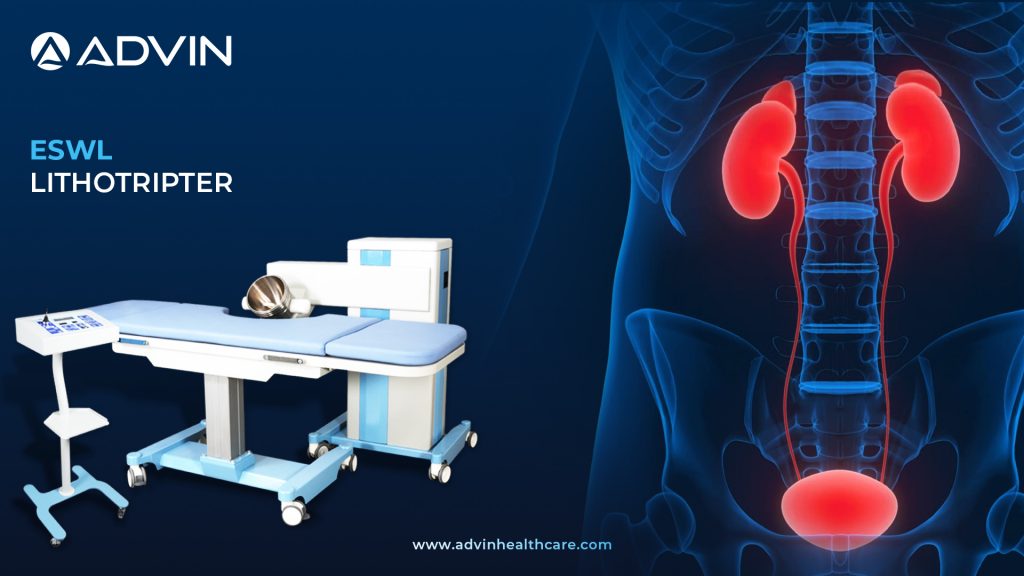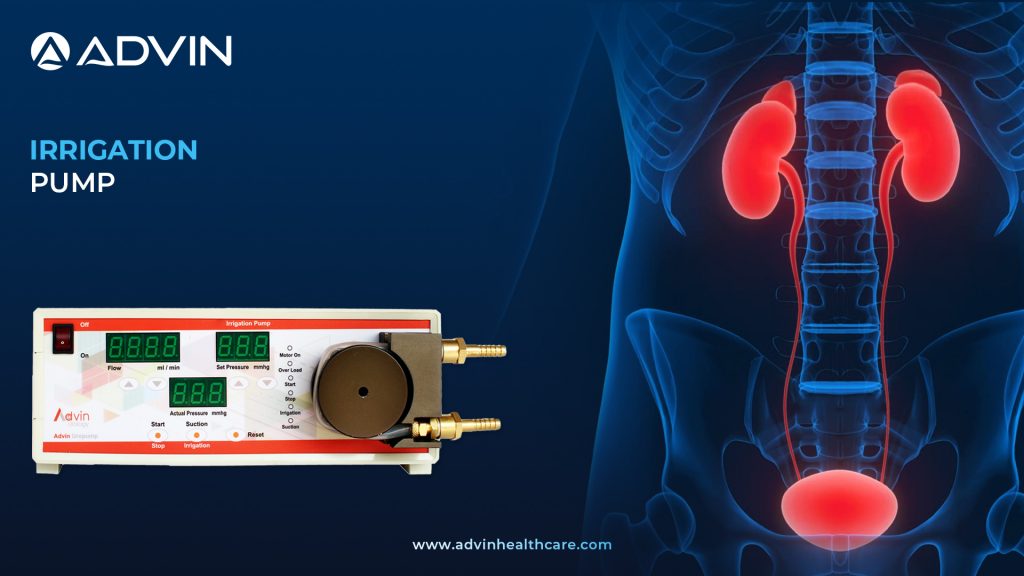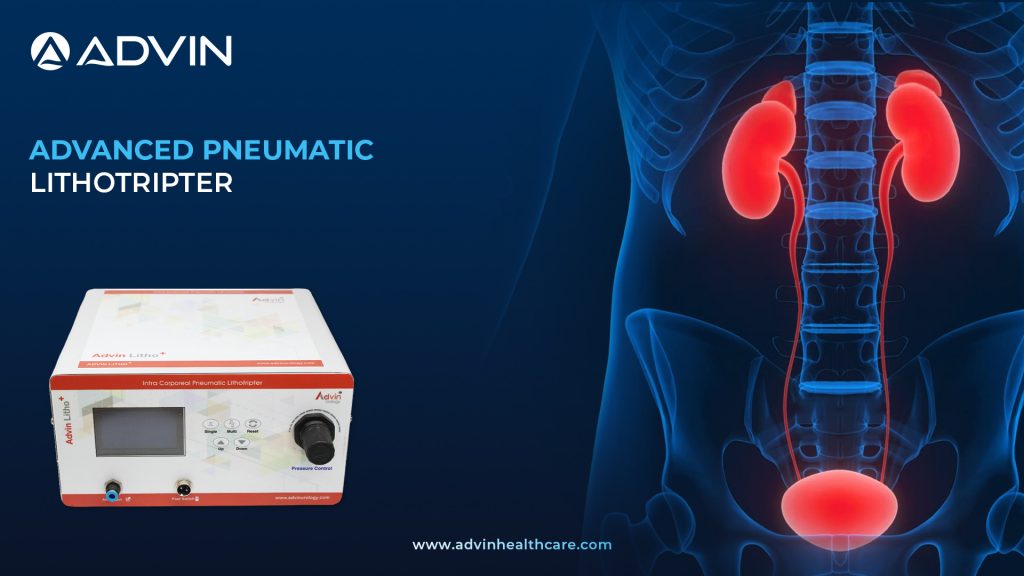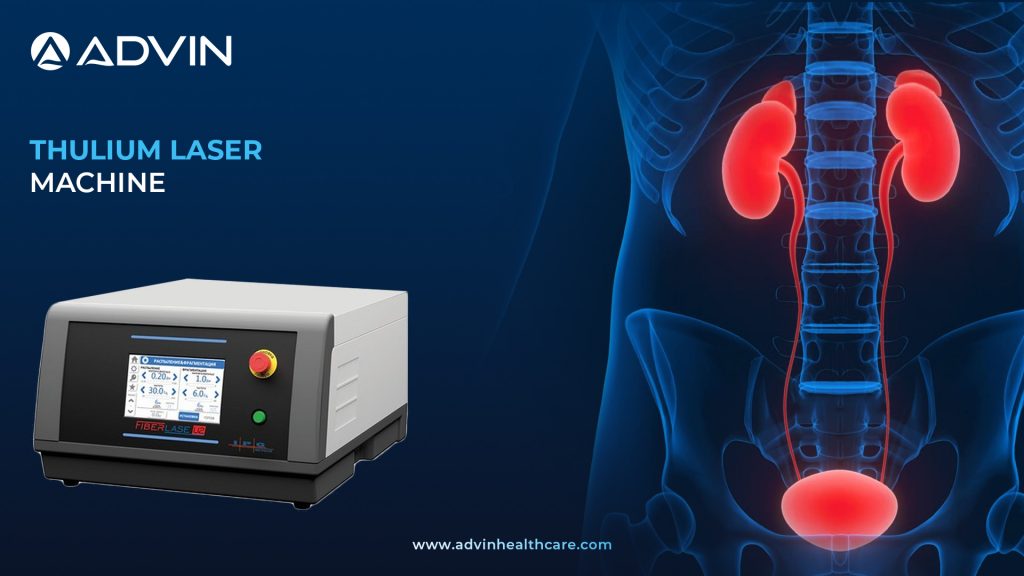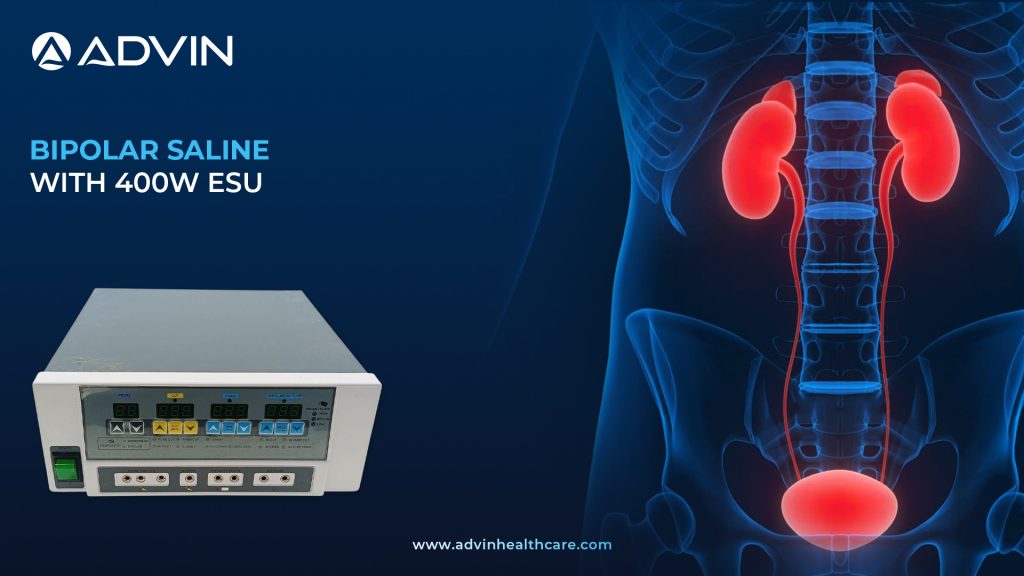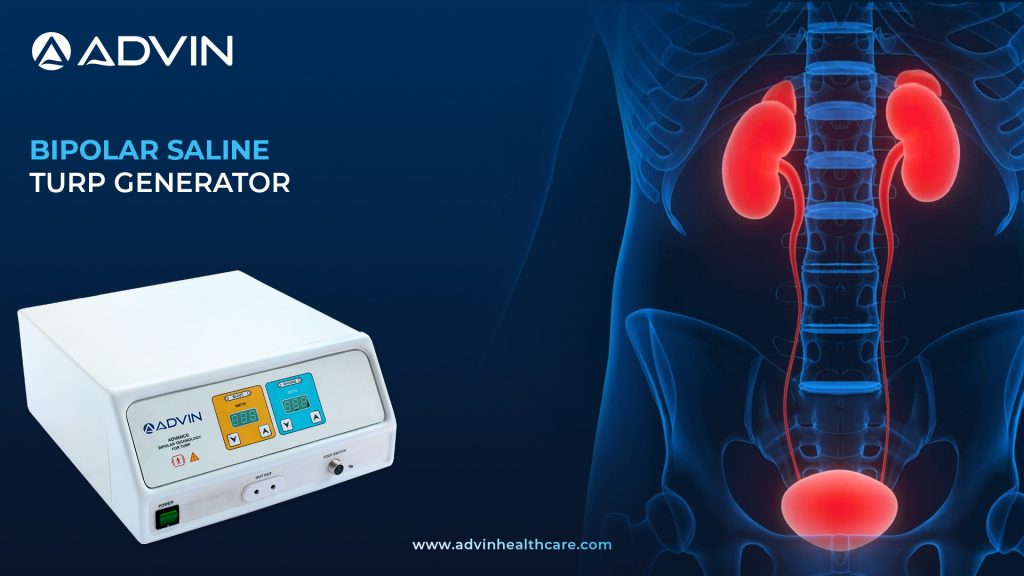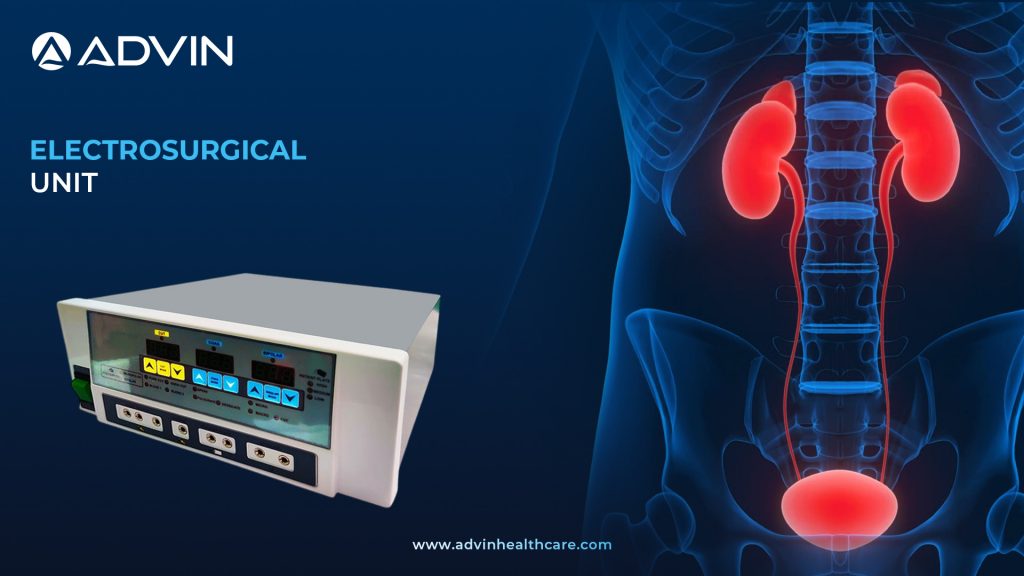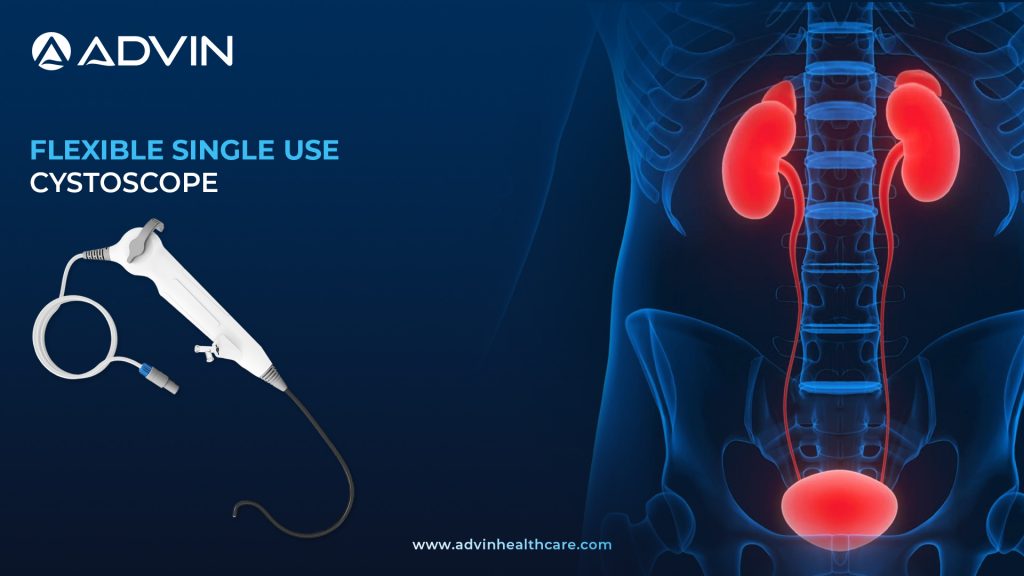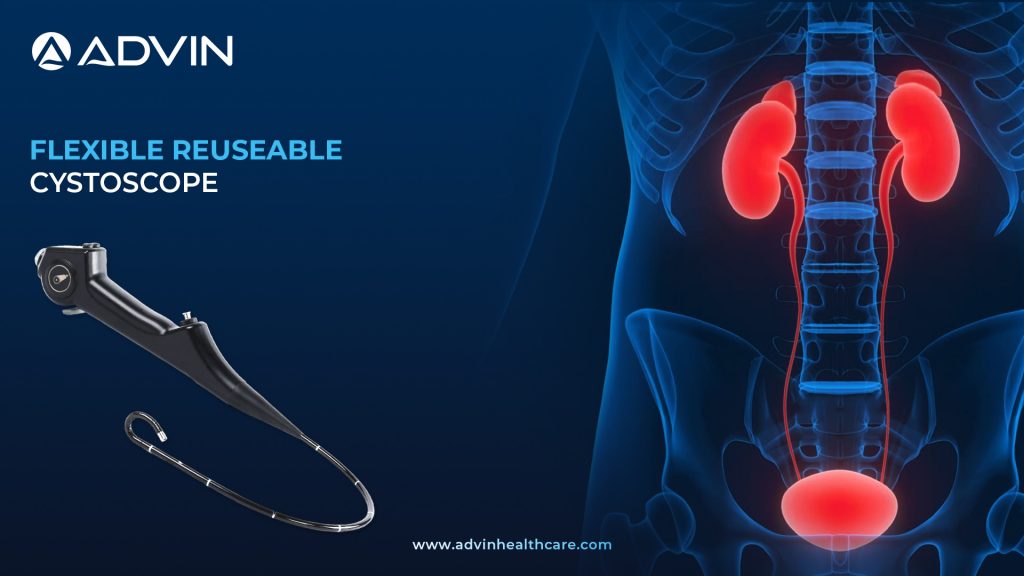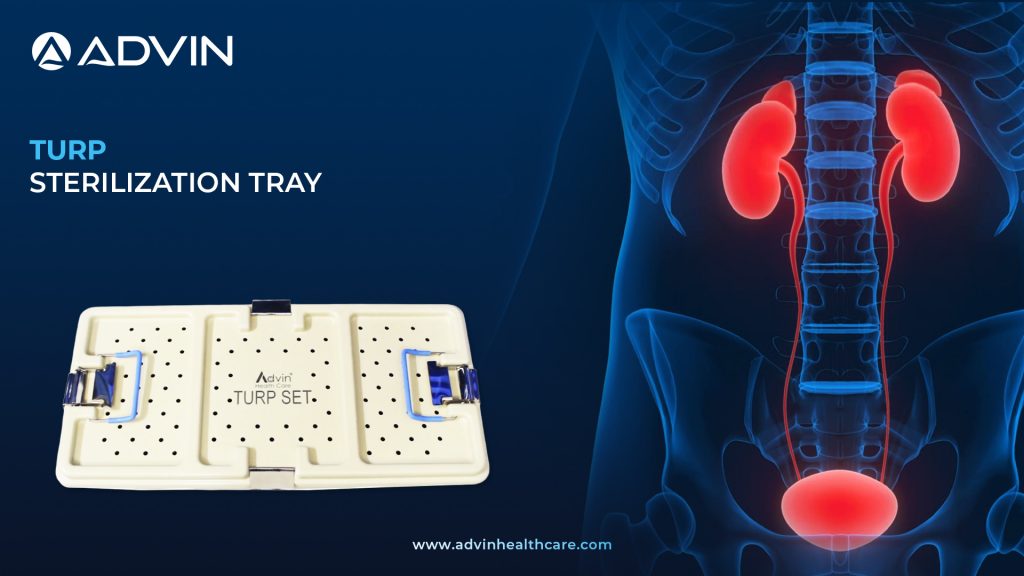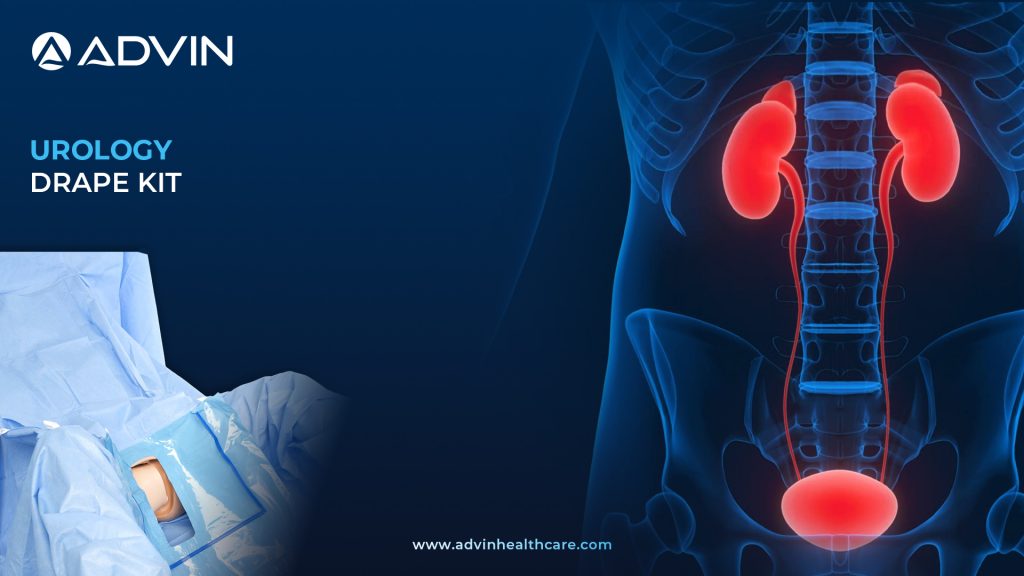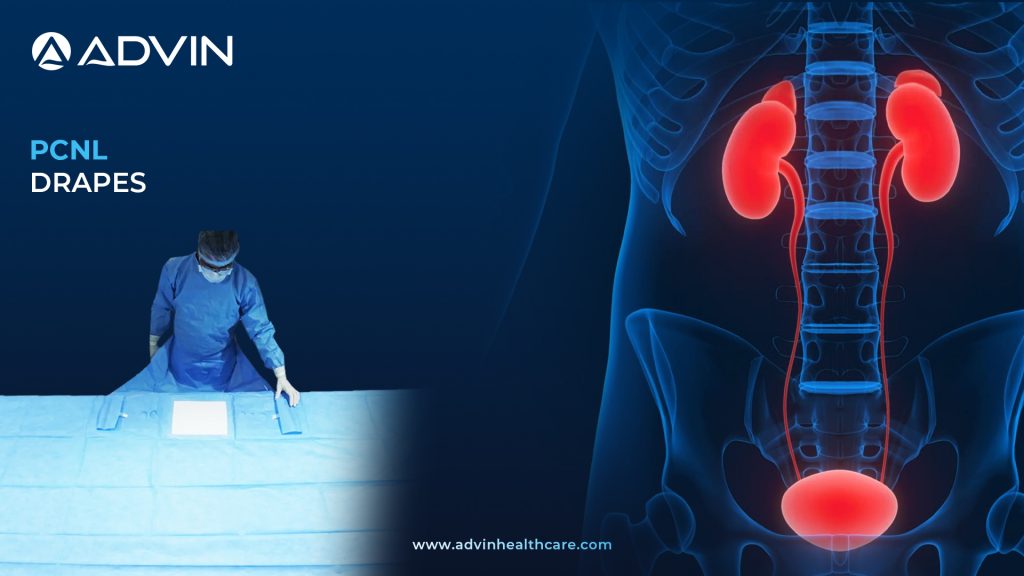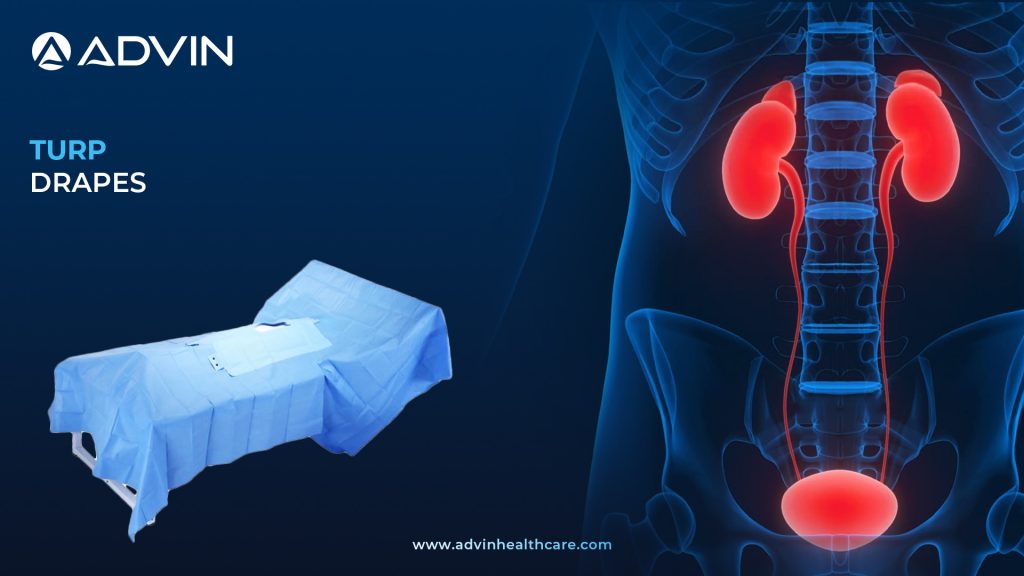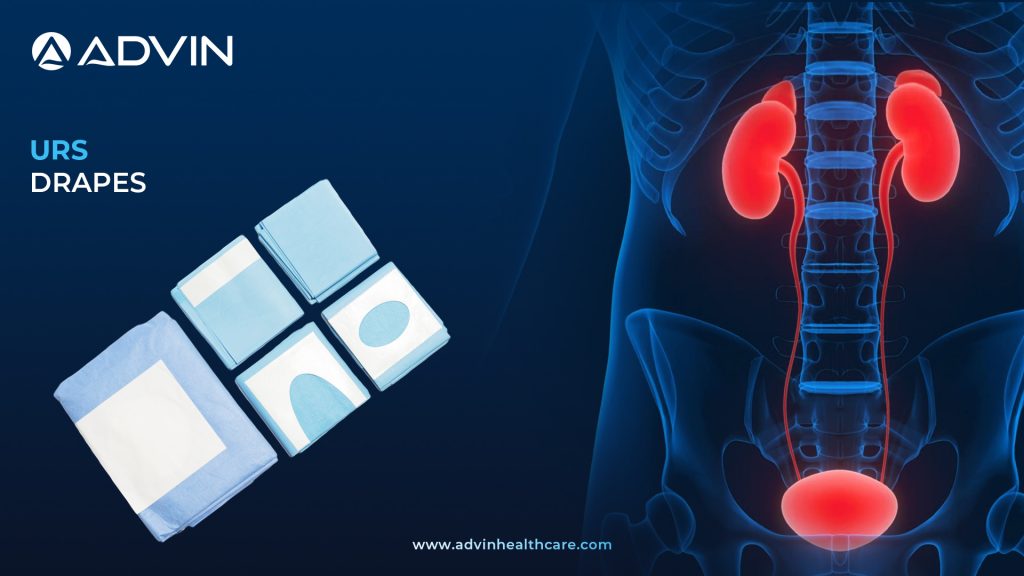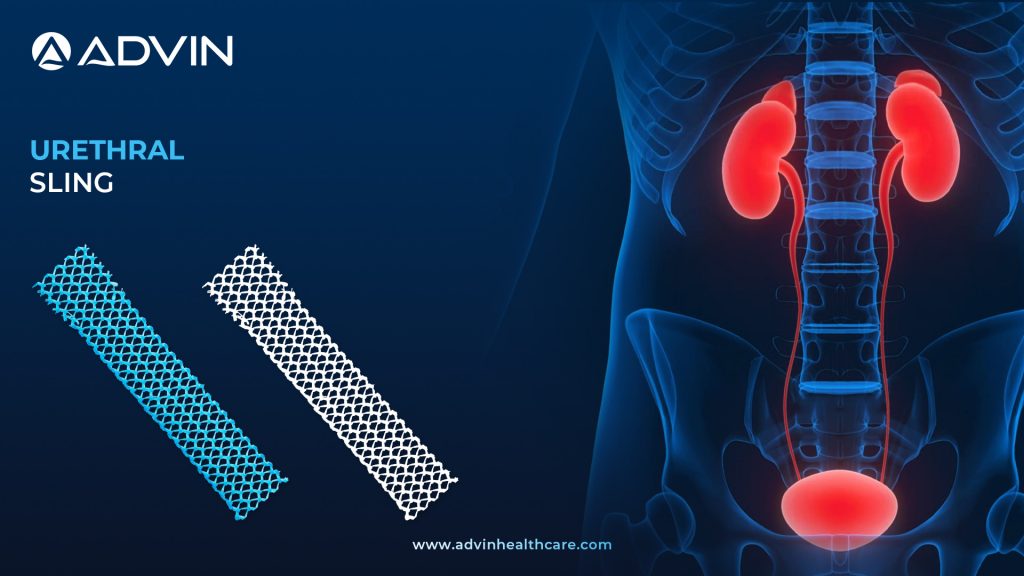C-Arm Machine – Advanced Imaging for Surgery & Diagnostics
 Advin Health Care
Advin Health Care
 September 29, 2025
September 29, 2025
Introduction to C-Arm Machine - Advanced Imaging for Surgical Precision A C Arm Machine is an advanced medical imaging device used during surgical and diagnostic procedures. It provides real-time X-ray images to guide surgeons with accuracy. This machine is widely used in urology, orthopedics, cardiology, and gastroenterology. Development & Evolution...
Read More
Prostate Morcellator Device – Advanced Tool for Enucleation Procedures
 Advin Health Care
Advin Health Care
 September 29, 2025
September 29, 2025
Introduction to Prostate Morcellator Device - Advanced Technology for Tissue Resection The Prostate Morcellator Device is a surgical instrument used in urology procedures for morcellation (fragmentation and removal) of large prostate tissue during Holmium Laser Enucleation of Prostate (HoLEP) or similar prostate surgeries. It helps surgeons remove enucleated prostate tissue...
Read More
Holmium Laser – Gold Standard Technology in Urology Stone Surgery
 Advin Health Care
Advin Health Care
 September 26, 2025
September 26, 2025
Introduction to Holmium Laser - Gold Standard in Endourological Laser Technology The Holmium Laser System is a highly advanced surgical energy device widely used in urology, gynecology, and orthopedics. In urology, it is primarily used for stone fragmentation (lithotripsy), prostate enucleation (HoLEP), and soft tissue applications. The Holmium:YAG laser emits...
Read More
ESWL Lithotripter – Non-Invasive Solution for Kidney Stone Treatment
 Advin Health Care
Advin Health Care
 September 25, 2025
September 25, 2025
Introduction to ESWL Lithotripter - Non-Invasive Stone Fragmentation Technology The ESWL Lithotripter is a medical device used to break kidney and ureteral stones into smaller fragments using focused shock waves. This non-invasive procedure avoids open surgery, allowing stones to pass naturally through the urinary tract. It is widely used for...
Read More
Advin URO Irrigation Pump – Advanced Fluid Management in Urology
 Advin Health Care
Advin Health Care
 September 25, 2025
September 25, 2025
Introduction to URS Forceps - Precision Instruments for Ureteroscopy The Advin URO Irrigation Pump is a medical device designed to provide controlled irrigation during urological procedures. It ensures a steady flow of saline or sterile fluids to maintain a clear surgical field. The pump is compatible with cystoscopes, ureteroscopes, and...
Read More
ADVIN Litho+ – Advanced Pneumatic Lithotripter for Stone Management
 Advin Health Care
Advin Health Care
 September 23, 2025
September 23, 2025
Introduction to ADVIN Litho+ - Advanced Solution for Stone Fragmentation The ADVIN Litho+ Advanced Pneumatic Lithotripter is a specialized urology device designed for the fragmentation of urinary stones. It delivers controlled pneumatic energy through a probe to break kidney, ureter, and bladder stones into smaller fragments that can be removed...
Read More
Thulium Laser Machine – Advanced Technology for Urology & Surgery
 Advin Health Care
Advin Health Care
 September 23, 2025
September 23, 2025
Introduction to Thulium Laser Machine - Precision Technology in Modern Urology The Thulium Laser Machine is a surgical laser system used in urology and other medical specialties. It provides precise cutting, vaporization, and enucleation of soft tissue with minimal bleeding. The machine is widely used in prostate surgery, stone fragmentation,...
Read More
Bipolar Saline with 400W ESU – Advanced TURP Solution by Advin
 Advin Health Care
Advin Health Care
 September 22, 2025
September 22, 2025
Introduction to Bipolar Saline with 400W ESU - Advanced Energy Solution for Urological Surgery The Bipolar Saline with 400W ESU (Advin BI TURP + ESU) is a high-performance energy system used during Transurethral Resection of the Prostate (TURP). It combines a bipolar generator with a 400W Electrosurgical Unit for precise...
Read More
Bipolar Saline TURP Generator – Reducing Complications in Prostate Surgery
 Advin Health Care
Advin Health Care
 September 19, 2025
September 19, 2025
Introduction to Bipolar Saline TURP Generator - Advanced Energy System for Prostate Surgery The Bipolar Saline TURP Generator is a surgical energy source used during transurethral resection of the prostate (TURP). It powers bipolar resection instruments and enables safe cutting and coagulation using saline as an irrigant. This system reduces...
Read More
Electrosurgical Unit – Advanced Technology for Modern Surgery
 Advin Health Care
Advin Health Care
 September 18, 2025
September 18, 2025
Introduction to Electrosurgical Unit - Precision Cutting & Coagulation in Surgery The Electrosurgical Unit (ESU) is a medical device used to cut, coagulate, or ablate tissue during surgical procedures using high-frequency electrical current. It enables precise control, minimizing bleeding and improving surgical efficiency. The ESU is essential for various urology,...
Read More
Flexible Single Use Cystoscope: Redefining Safety & Efficiency in Urology
 Advin Health Care
Advin Health Care
 September 18, 2025
September 18, 2025
Introduction to Flexible Single Use Cystoscope - A Modern Solution for Diagnostic & Therapeutic Cystoscopy The Flexible Single Use Cystoscope is a disposable medical device used for diagnostic and therapeutic procedures in the urinary bladder and urethra. It eliminates the need for reprocessing, reducing the risk of cross-contamination. With its...
Read More
Flexible Reusable Cystoscope – Advanced Visualization in Urology
 Advin Health Care
Advin Health Care
 September 16, 2025
September 16, 2025
Introduction to Flexible Reusable Cystoscope - Advanced Visualization for Bladder Examination The Flexible Reusable Cystoscope is an advanced endoscopic instrument used for direct visualization of the bladder and urethra. It allows urologists to perform diagnostic and therapeutic procedures with enhanced flexibility, control, and patient comfort. The reusable design ensures cost-effectiveness...
Read More
TURP Sterilization Tray – Safe & Organized Instrument Management
 Advin Health Care
Advin Health Care
 September 15, 2025
September 15, 2025
Introduction to TURP Sterilization Tray - Organized Sterility for Endourology Instruments The TURP Sterilization Tray is a specially designed medical tray used for the safe storage, organization, and sterilization of instruments used in Transurethral Resection of the Prostate (TURP) procedures. It is made of durable, medical-grade materials that withstand repeated...
Read More
URS Sterilization Tray – Essential for Safe Ureterorenoscopy Procedures
 Advin Health Care
Advin Health Care
 September 15, 2025
September 15, 2025
Introduction to Pediatric TURP Resectoscope Set - Specialized Design for Young Patients The URS Sterilization Tray is a specially designed medical tray used for the safe organization, cleaning, sterilization, and storage of URS (Ureterorenoscopy) instruments. It is made of high-quality, medical-grade materials that withstand repeated autoclaving and sterilization cycles without...
Read More
Cystoscopy Sterilization Tray – Safe & Efficient Instrument Management
 Advin Health Care
Advin Health Care
 September 12, 2025
September 12, 2025
Introduction to Cystoscopy Sterilization Tray - Safe Storage & Sterilization for Endoscopic Instruments The Cystoscopy Sterilization Tray is a specially designed container used for sterilizing and storing delicate cystoscopy instruments. It provides safe organization, protection, and proper sterilization during medical procedures. The tray ensures instruments remain sterile and ready for...
Read More
Urology Drapes & Kits – Essential Disposable Solutions for Urological Surgeries
 Advin Health Care
Advin Health Care
 September 11, 2025
September 11, 2025
Introduction to Urology Drapes & Kit - Complete Sterile Solutions for Urological Procedures Urology Drapes & Kits are sterile, single-use drapes and customized packs designed specifically for urology procedures. They include specialized drapes such as TURP drapes, PCNL drapes, URS drapes, and stone management drapes. These kits ensure complete infection...
Read More
PCNL Drape – Essential Sterile Drape for Percutaneous Nephrolithotomy
 Advin Health Care
Advin Health Care
 September 10, 2025
September 10, 2025
Introduction to PCNL Drape - Sterile Protection for Percutaneous Nephrolithotomy A PCNL Drape is a sterile, disposable drape specifically designed for Percutaneous Nephrolithotomy (PCNL) surgeries. It provides a protective covering and sterile barrier during the procedure, ensuring patient safety and infection control. The drape includes a fluid collection pouch, adhesive...
Read More
TURP Drape – Essential Sterile Drape for Prostate Surgery
 Advin Health Care
Advin Health Care
 September 10, 2025
September 10, 2025
Introduction to TURP Drape - Sterile Draping Solution for Transurethral Resection Procedures A TURP Drape is a sterile, disposable drape designed for Transurethral Resection of the Prostate (TURP) surgery. It provides a sterile barrier and fluid control during the procedure. The drape ensures patient safety, infection prevention, and ease of...
Read More
URS Drape – Essential Disposable Drape for Ureterorenoscopy Procedures
 Advin Health Care
Advin Health Care
 September 8, 2025
September 8, 2025
Introduction to URS Drape - Sterile Cover for Safe Ureterorenoscopy Procedures A URS Drape is a sterile surgical drape designed for use during ureteroscopy (URS) procedures. It provides a protective barrier to maintain a sterile field and prevent contamination. The drape is made from medical-grade, fluid-resistant material for patient and...
Read More
Urethral Sling – Advanced Treatment for Stress Urinary Incontinence
 Advin Health Care
Advin Health Care
 September 8, 2025
September 8, 2025
Introduction to Urethral Sling - A Proven Solution for Stress Urinary Incontinence (SUI) A Urethral Sling is a surgical implant used to treat stress urinary incontinence (SUI) in both men and women. It works by providing support to the urethra and improving bladder control. The sling is made of biocompatible...
Read More

